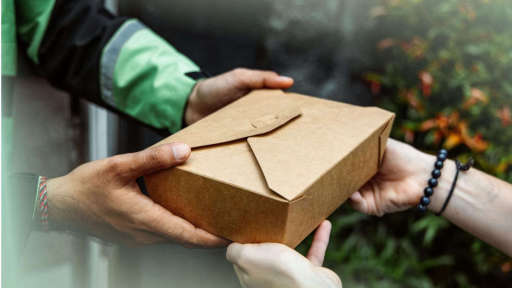12 Basic Greetings in Japan
There are 12 basic greetings in business situation in Japan.
How many greetings do you know? And do you understand in which situation you should use them?
- 「おはようございます」=Good morning.
You should have learned this phrase in the very first phase of studying Japanese language. We say it in the morning, until 10 a.m. at the latest. - 「お疲(つか)れ様(さま)です」≒Thank you for your hard work.
There is another phrase saying「ご苦労(くろう)様(さま)です」which is very similar to 「お疲(つか)れ様(さま)です」. However, you should not say 「ご苦労(くろう)様(さま)です」because this is what a superior person say to a subordinate one. - 「申(もう)し訳(わけ)ありません」≒I’m sorry.
If you are a student or are not used to speak Japanese language, 「ごめんなさい」is a frequently used phrase for apology. But in business situation, 「ごめんなさい」is inappropriate. Please do not forget this way to apologize. - 「お先(さき)に失礼(しつれい)します」≒I’m leaving for today.
When you have done with your task and you are leaving the office, you will say「お先(さき)に失礼(しつれい)します」. If it was directly translated into English, this phrase means that “I will leave here before/earlier than you.” - 「恐れ入ります」≒I’m afraid but~ / I’m sorry to trouble you, but~
You will use this phrase when you are speaking to someone superior to you. For example, 「お忙(いそが)しいところ恐(おそ)れ入(い)ります、少々(しょうしょう)お時間(じかん)よろしいでしょうか。」(I’m sorry to trouble you despite being busy, but could you spare me a few minutes?)And it will also be used when you ask someone to do something. For example,「恐(おそ)れ入(い)りますが、こちらの書類(しょるい)を再度(さいど)ご確認(かくにん)いただけませんか?」(I’m afraid but could you read over this document again?) - 「失礼(しつれい)します」
This phrase is frequently heard in business situation in Japan. You will use this especially when entering another room. And when leaving, you will say「失礼(しつれい)しました」in past tense. - 「少々(しょうしょう)お待(ま)ちください」≒One moment, please.
There is no mention about how long “少々” is. Guess how long! Technically speaking, “少々” means within 30 seconds! If there is possibility that it would take over half a minute, you should say 「”しばらく”お待(ま)ちください」. You will often say this phrase when talking on the phone.
Client: “佐藤部長はいらっしゃいますか?(Is Mr. Sato there?)”
You: “只今(ただいま)お繋(つな)ぎしますので、少々(しょうしょう)お待(ま)ちください。(I will put you through now. One moment, please.)” - 「お待(ま)たせいたしました」≒I’m sorry to have kept you waiting.
After having someone wait, you will say「お待(ま)たせいたしました」Here is an example:
Mr. Sato: ~Answering the phone from the client after you connected it~
“お待(ま)たせいたしました、佐藤(さとう)です。(I’m sorry to have kept you waiting, this is Sato speaking.)” - 「(~に)行(い)ってきます」≒I’m going to~
Not only when going outside, but also when leaving your seat for a second, it is better to say 「(~に)行ってきます」to some people around you. For example, you can say 「お手洗(てあら)いに行(い)ってきます」when going to the restroom. (お手洗い is a polite way to mention a bathroom.) But do you know why you should say this? Because there can be someone calling you while you are not there, and your coworker cannot tell them when you are available and what you are doing. Not bothering others is considered to be important. - 「ただいま戻(もど)りました」≒I’m back.
This can be heard when someone is back to the office from outside. - 「かしこまりました」≒No problem. / Certainly.
「かしこまりました」means the same as「わかりました」, however, 「わかりました」is not a formal way. You should get used to saying 「かしこまりました」in Japanese business situation. - 「ありがとうございました」≒Thank you.
To express your gratitude to someone is the most important thing. Please remember to say「ありがとうございました」when they did something for you.
Other Greeting Manners
Sometimes you will find an unfamiliar person at your office.
Don’t ignore them, and say hello! Because…
- They can be a client. It is disrespectful if you say nothing.
- They can be a thief! Not saying hello will make it easier for them to commit a crime because there would be few people noticing them.
When you met someone in the hallway or on the stairs
You need to do “Eshaku”, which is one of the bowing ways in Japan. We are explaining it later.
What would you say when you are late?
You will say「遅(おそ)くなって申(もう)し訳(わけ)ありません」when arriving at your office. But that is not enough as a business person. First, you should let your boss know that you will be late as soon as you find out. If the reason for being late was “train delay”, you need to get 遅延証明書(ちえんしょうめいしょ, Train Delay Certificate)at the station and show it to your boss.
What would you do if you suddenly got sick on the day and want to get a day off?
Yes, you will directly give a phone call to your boss and tell them about your situation. You can say「大変(たいへん)申(もう)し訳(わけ)ないのですが、本日(ほんじつ)は体調不良(たいちょうふりょう)のため休(やす)ませていただきます」(I’m really sorry but today I need to take a rest.) Here there is one thing you must remember: Don’t send an e-mail when you ask for a day off on the day in case that your boss should overlook your message.
How to Bow
What is “bowing”? It is said that Ojigi (Japanese bowing) is the act for showing that there is no hostile feelings against them. Some people say that the root of bowing dates back to between the 5th and 8th centuries!
Now, we will learn 4 points when bowing.
- Lengthen your back and pull your chin in.
- Stand with your toes slightly apart, put your heels together.
- Straighten your fingers, and let your arms hang down naturally at your sides or front side.
- Look in the eyes before and after bowing.
A light bow called “Eshaku”
会釈(えしゃく), which is generally performed with a slight inclination of about 15° of your upper body*, shows that you have noticed the person in front of you.
*At the bowing position, your eyes should glance at the floor roughly three meters in front of your feet.
Situation in which you do “Eshaku”
- 「少々(しょうしょう)お待(ま)ちください」
- 「お待(ま)たせいたしました」
- 「失礼(しつれい)いたします」
- 「かしこまりました」
A general bow called “Keirei”
He says 普通礼(ふつうれい)in the video, however, this is generally called 敬礼(けいれい).
This is performed with an inclination of about 30° of the upper body*, basically used in meeting a client or a person you have never met.
*At the bowing position, your eyes should glance at the floor roughly 50-60 centi-meters in front of your feet.
Situation in which you do “Keirei”
- 「おはようございます」
- 「ありがとうございます」
- 「お先(さき)に失礼(しつれい)します」
A deep bow called “Sai-keirei”
As the name show, this way of bowing means “the most respectful bowing”. This is performed with an inclination of about 45° of the upper body*.
*At the bowing position, your eyes should glance at your feet.
Situation in which you do “Sai-keirei”
- 「ありがとうございました」
- 「申(もう)し訳(わけ)ございません」
How was today’s post? The more you understand Japanese business culture, the more easily you can work in Japan.
















